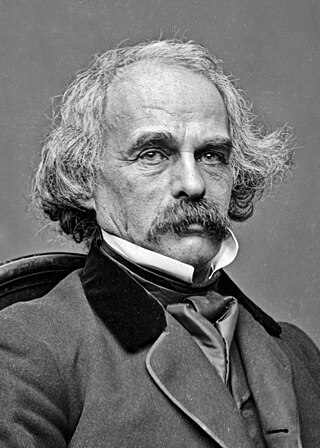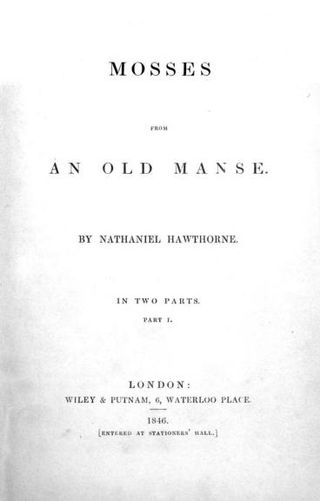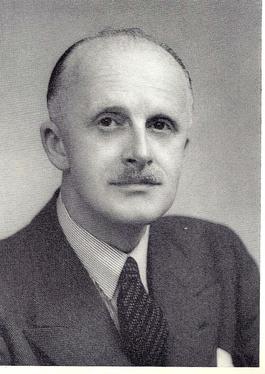Related Research Articles

Herman Melville was an American novelist, short story writer, and poet of the American Renaissance period. Among his best-known works are Moby-Dick (1851); Typee (1846), a romanticized account of his experiences in Polynesia; and Billy Budd, Sailor, a posthumously published novella. Although his reputation was not high at the time of his death, the 1919 centennial of his birth was the starting point of a Melville revival, and Moby-Dick grew to be considered one of the great American novels.

Nathaniel Hawthorne was an American novelist and short story writer. His works often focus on history, morality, and religion.

Romantic music is a stylistic movement in Western Classical music associated with the period of the 19th century commonly referred to as the Romantic era. It is closely related to the broader concept of Romanticism—the intellectual, artistic and literary movement that became prominent in Western culture from approximately 1798 until 1837.
Peter Russell-Clarke is an Australian chef, cookbook writer, illustrator and media personality

Studies in Classic American Literature is a work of literary criticism by the English writer D. H. Lawrence. It was first published by Thomas Seltzer in the United States in August 1923. The British edition was published in June 1924 by Martin Secker.
Post-romanticism or Postromanticism refers to a range of cultural endeavors and attitudes emerging in the late nineteenth and early twentieth centuries, after the period of Romanticism.

John Henry Clifford was an American lawyer and politician from New Bedford, Massachusetts. He served as the state's attorney general for much of the 1850s, retaining the office during administrations dominated by three different political parties. A Whig, he was elected the state's 21st governor, serving a single term from 1853 to 1854. He was the first governor of Massachusetts not born in the state.
"Isle of the Cross" is a possible unpublished and lost work by Herman Melville, which would have been his eighth book, coming after the commercial and critical failures of Moby-Dick (1851) and Pierre: or, The Ambiguities (1852). Melville biographer Hershel Parker suggests that the work, perhaps a novel, perhaps a story, was what had been known as the "story of Agatha," completed around May 1853. He further suggests that finishing the work showed that Melville had not, as many biographers argued, been discouraged and turned away from fiction.
The Knickerbocker Group was a somewhat indistinct group of 19th-century American writers. Its most prominent members included Washington Irving, James Fenimore Cooper and William Cullen Bryant. Each was a pioneer in general literature—novels, poetry and journalism.

Urban Gothic is a subgenre of Gothic fiction, film horror and television dealing with industrial and post-industrial urban society. It was pioneered in the mid-19th century in Britain, Ireland and the United States and developed in British novels such as Robert Louis Stevenson's Strange Case of Dr Jekyll and Mr Hyde (1886), and Irish novels such as Oscar Wilde's The Picture of Dorian Gray (1890), and Bram Stoker's Dracula (1897). In the twentieth century, urban Gothic influenced the creation of the subgenres of Southern Gothic and suburban Gothic. From the 1980s, interest in the urban Gothic revived with books like Anne Rice's Vampire Chronicles and a number of graphic novels that drew on dark city landscapes, leading to adaptations in film including Batman (1989), The Crow (1994) and From Hell (2001), as well as influencing films like Seven (1995).

"Hawthorne and His Mosses" (1850) is an essay and critical review by Herman Melville of the short story collection Mosses from an Old Manse written by Nathaniel Hawthorne in 1846. Published pseudonymously by "a Virginian spending July in Vermont", it appeared in The Literary World magazine in two issues: August 17 and August 24, 1850. It has been called the "most famous literary manifesto of the American nineteenth century."

Arthur Hugh Chaplin was an English librarian who was Principal Keeper of Printed Books at the British Museum. He was a prolific author in the fields of librarianship and cataloguing, working hard to achieve an international standard for cataloguing through participation in the major international conferences of his time.
Arthur Sheppard (1862–1944) was private secretary to Archbishop Davidson, who served as Archbishop of Canterbury from 1902 to 1928.
Stephen Wildman is Professor of the History of Art at the University of Lancaster and Director of the Ruskin Library and Research Centre.
George Moreby Acklom, was a British writer, editor, literary adviser and critic based in New York City, principally with the publisher E.P. Dutton, and the father of the Hollywood actor David Manners.
Neil Wynn Williams was a British novelist, writer and contributor of short stories and articles to the periodicals and journals of his time.
Michael Toner is a British journalist. He was political editor, diplomatic correspondent and leader writer at the Sunday Express, chief leader writer on the Daily Mail until 2006, a political author and novelist.

Frederick George "Derick" Emmison was a British archivist, author and historian. He was County Archivist for Bedfordshire between 1925 and 1938, County Archivist for Essex between 1938 and 1969, a founder member of the British Records Association and the Society of Archivists, and a winner of the John Bickersteth Medal in 1974 and the Medlicott Medal in 1987. He was also a prolific author who made a significant contribution to our understanding of the Elizabethan era through close analysis of the minutiae of local records of that age in Essex.

Donald Charles Riddy CBE was a British linguist and educationalist. After the Second World War, he was the British Controller-General of the Education Branch, Control Commission for German - British Element, tasked with assisting the de-nazification of Germany through a process of re-education. He was later co-ordinator of the Council of Europe Modern Languages Programme and, for most of his career, Her Majesty's Chief Inspector of Modern Languages in Schools. He was described as a man of ‘wide administrative experience and enormous energy, for whom material difficulties were a challenge which he met with enthusiasm’.

The type of romance considered here is mainly the genre of novel defined by the novelist Walter Scott as "a fictitious narrative in prose or verse; the interest of which turns upon marvellous and uncommon incidents", in contrast to mainstream novels which realistically depict the state of a society. These works frequently, but not exclusively, take the form of the historical novel. Scott's novels are also frequently described as historical romances, and Northrop Frye suggested "the general principle that most 'historical novels' are romances". Scott describes romance as a "kindred term", and many European languages do not distinguish between romance and novel: "a novel is le roman, der Roman, il romanzo".
References
- 1 2 3 David Morse. "The Age of Virtue". Palgrave Macmillan. Retrieved 3 June 2015.
- ↑ JSTOR. Review of The Age of Virtue. Reviewed by Ronnie Young in Albion:A Quarterly Journal Concerned with British Studies. Vol.33, No.2 (Summer, 2001), pp311-313
- ↑ Pease, Donald E. (1987). Journal of American Studies – David Morse, American Romanticism, 2 Vols.; Vol. 1, From Cooper to Hawthorne: Excessive America; Vol. 2, From Melville to James: The Enduring Excessive (London: Macmillan, 1987, £40). Pp. 228 & 189. ISBN 0 333 40712 1.
Donald E. Pease, Visionary Compacts: American Renaissance Writings in Cultural Context (Madison & London: University of Wisconsin Press, 1987, $32.50). Pp. 303. – Cambridge Journals Online. cambridge.org. ISBN 0-299-11000-1 . Retrieved 3 June 2015. - 1 2 Curtis, James M.; Curtis, Jim (1987). Rock Eras. ISBN 9780879723699 . Retrieved 3 June 2015.
- 1 2 "Motown". virginmedia.com. Archived from the original on 7 September 2015. Retrieved 3 June 2015.
- 1 2 Djedje, Jacqueline Cogdell; Meadows, Eddie S. (12 May 1998). California Soul. ISBN 9780520206281 . Retrieved 3 June 2015.
- 1 2 David Morse. "High Victorian Culture". Palgrave Macmillan. Retrieved 3 June 2015.
- 1 2 3 Sinnema, Peter W. (21 April 2006). The Wake of Wellington. ISBN 9780821442098 . Retrieved 3 June 2015.
- 1 2 Bullen, J. B. (6 June 2014). Writing and Victorianism. ISBN 9781317888468 . Retrieved 3 June 2015.
- 1 2 O'Leary, John (2011). Savage Songs and Wild Romances. ISBN 978-9401206860 . Retrieved 3 June 2015.
- 1 2 Bedford Modern School of the Black and Red, by A.G. Underwood (1981). Published by Bedford Modern School, Bedford, 1981
- ↑ Motown and the arrival of black music. worldcat.org. OCLC 376050 . Retrieved 3 June 2015.
- ↑ Salzman, Jack (29 August 1986). American Studies. ISBN 9780521266871 . Retrieved 3 June 2015.
- ↑ Grandfather rock: the new poetry and the old. worldcat.org. OCLC 222036 . Retrieved 3 June 2015.
- ↑ Perspectives on romanticism : a transformational analysis. worldcat.org. OCLC 7965496 . Retrieved 3 June 2015.
- ↑ Romanticism, a structural analysis. worldcat.org. OCLC 8417902 . Retrieved 3 June 2015.
- ↑ Morse, David (17 March 1982). Romanticism, a Structural Analysis. ISBN 9780333282977 . Retrieved 3 June 2015.
- ↑ American Romanticism. worldcat.org. OCLC 12162763 . Retrieved 3 June 2015.
- ↑ American romanticism. Vol.1, From Cooper to Hawthorne,: excessive America. worldcat.org. OCLC 59019518 . Retrieved 3 June 2015.
- ↑ "American romanticism / David Morse. Vol.1., From Cooper to Hawthorne : excessive America. – Version details – Trove". nla.gov.au. Retrieved 3 June 2015.
- ↑ American romanticism. 2. From Melville to James. worldcat.org. OCLC 180395990 . Retrieved 3 June 2015.
- ↑ Pease, Donald E. (1987). Journal of American Studies – David Morse, American Romanticism, 2 Vols.; Vol. 1, From Cooper to Hawthorne: Excessive America; Vol. 2, From Melville to James: The Enduring Excessive (London: Macmillan, 1987, £40). Pp. 228 & 189. ISBN 0 333 40712 1.
Donald E. Pease, Visionary Compacts: American Renaissance Writings in Cultural Context (Madison & London: University of Wisconsin Press, 1987, $32.50). Pp. 303. – Cambridge Journals Online. cambridge.org. ISBN 0-299-11000-1 . Retrieved 3 June 2015. - ↑ England's time of crisis : from Shakespeare to Milton : a cultural history. worldcat.org. OCLC 18105545 . Retrieved 3 June 2015.
- ↑ High Victorian culture. worldcat.org. OCLC 26013889 . Retrieved 3 June 2015.
- ↑ JSTOR. Review of High Victorian Culture. Reviewed by Richard D. Altick in Nineteenth Century Literature. Vol 48, No.4 (Mar 1994). pp537-540
- ↑ The age of virtue : British culture from the Restoration to Romanticism. worldcat.org. OCLC 40881483 . Retrieved 3 June 2015.
- ↑ Matikkala, Antti (2008). The Orders of Knighthood and the Formation of the British Honours System ... ISBN 9781843834236 . Retrieved 3 June 2015.